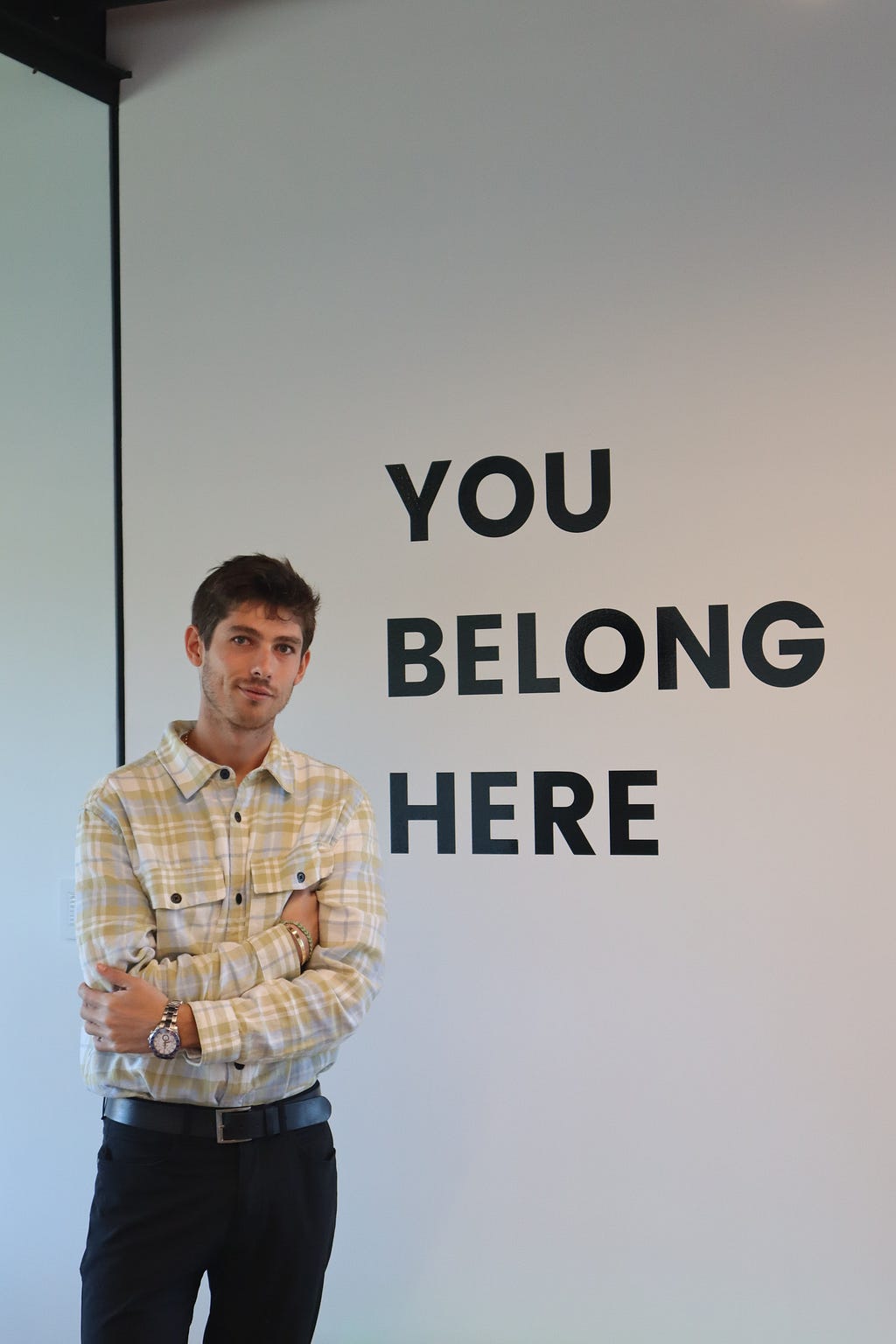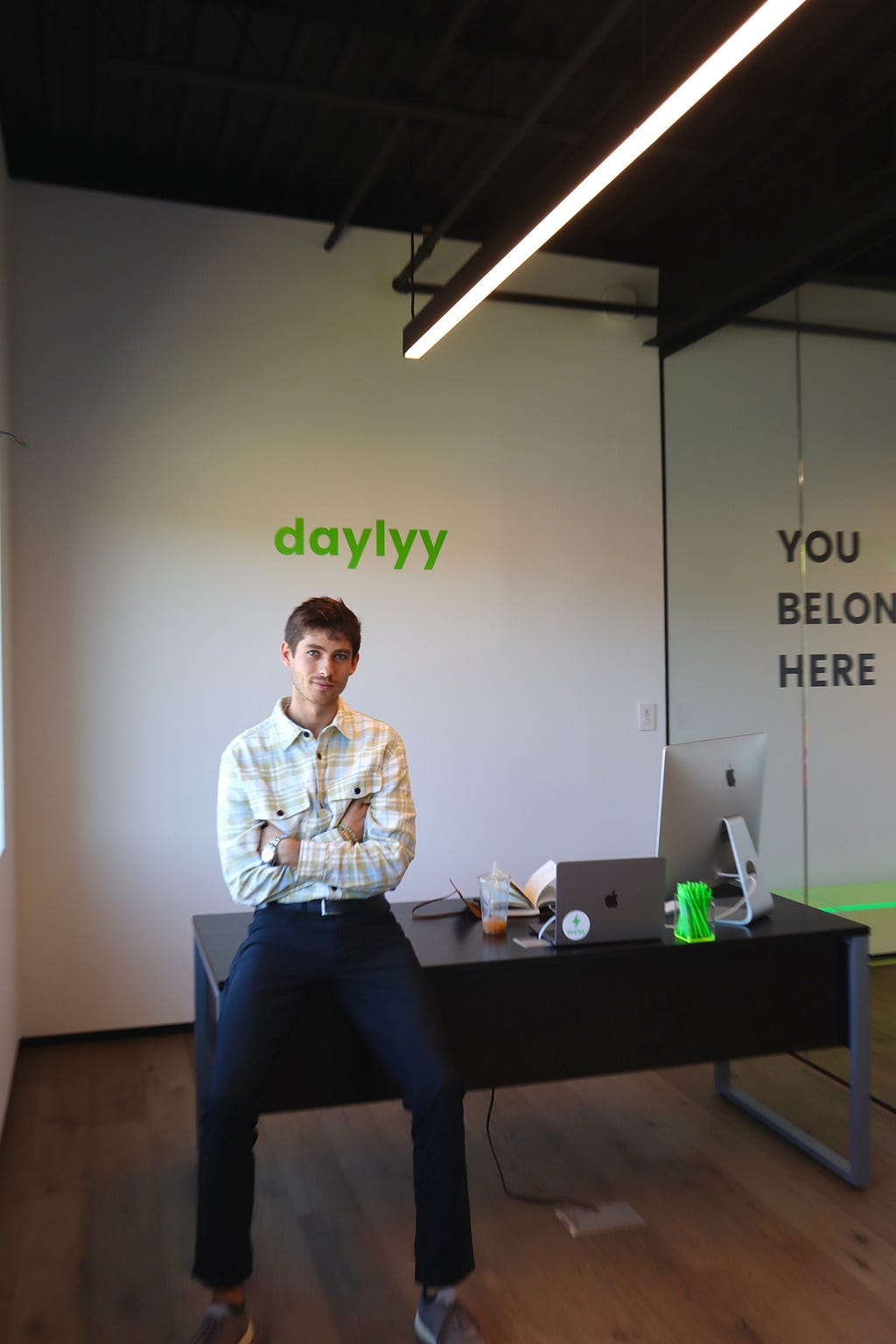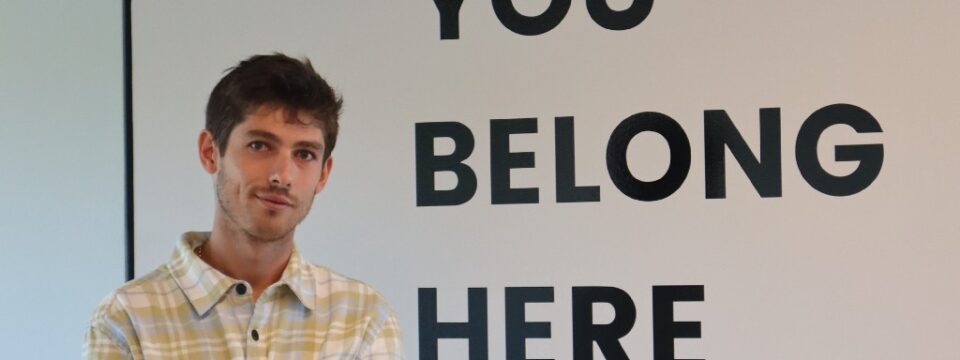Austin Anderson of Daylyy: 5 Things We Can Each Do To Make Social Media And The Internet A Kinder And More Tolerant Place

Treat Others The Way You Want To Be Treated — It’s actually so simple — if it wouldn’t make you feel good/you wouldn’t want it said about you, don’t do it or say it!.
As a part of our interview series about the things we can each do to make social media and the internet a kinder and more tolerant place, I had the pleasure to interview Austin Anderson, Founder of social media platform daylyy.
If Austin Anderson, Gen-Z founder of new social media platform Daylyy, had his way, people would post more and worry less about impressing others, and stop being their own worst critic. Social media isn’t going away, so he rewired social media as we know it. Austin’s startup journey began pre-pandemic when he was a recent graduate of the College of Charleston and created a job board app for college students. As the platform progressed and the next step was to design an interactive, social element, his user feedback revealed people were becoming increasingly fed up with the fake nature of current social media. That’s when he decided to pivot and take the future of social media into his own hands.
In 2021, the path of Anderson’s original app forever shifted from careers to content, and his mission became what Daylyy is today. Daylyy is a gut punch to the platforms that breed negativity and bullying and offers a casual social media environment focused on authentic content, a positive and healthy experience, and sincere relationships. His message is simple: You belong here.
Thank you so much for doing this with us! Our readers would love to “get to know you” a bit better. Can you share your “backstory” with us?
Influenced by the French and Puerto Rican heritage of my mother and the drive of my entrepreneurial
father, I have always gravitated towards ideas that push limits. I have big dreams and I’m not shy about pursuing them.
My startup journey began pre-pandemic when I was a recent graduate of the College of
Charleston and created a job board app for college students. As the app was adopted, I began to develop phase 2 of the app, which included an interactive and social feedback element. During the research phase, when I was collecting user feedback, one sentiment kept coming up from those I spoke to — and that is they were increasingly fed up with the fake nature of current social media. It’s through these discussions that I was inspired to pivot directions to take the future of social media into my own hands.
I was frustrated that it seemed the voices of the youngest generation of social media users were being ignored. Toxicity on social media is well documented and people deserve a better, healthier social media experience. The initial purpose of social media was to deepen connection — it was a way to share and view content that was happening in real time, as a daily view into each other’s lives.
Daylyy rewires social media usage back to what it was intended to be. It is a gut punch to the platforms that breed negativity and bullying by offering a casual social media environment focused on authentic content, creating a positive and healthy experience, and allowing users to form sincere relationships.
Can you share the most interesting story that happened to you since you started your career?
As I stated earlier, daylyy was not actually the original vision for my entry into the app world. I had launched and operated a startup app that was focused on connecting recent college graduate job seekers with employment opportunities. We ran the app for three years! As we were looking to the next evolution of the network, the discourse from users led me to dream about daylyy.
I then shut down my established and successful platform to restart from scratch to invest time, effort, and resources into creating daylyy. In the four months since daylyy has been available, we’ve grown our community to include users from all 50 states and 60 countries worldwide.
It has been said that our mistakes can be our greatest teachers. Can you share a story about the funniest mistake you made when you were first starting? Can you tell us what lesson you learned from that?
As I’ve navigated through the start-up world, I’ve learned the way to success is through hard work and having the ability to communicate effectively. You can have the best product in the world but if you can’t cast vision in a compelling way, your ideas are often DOA. I’ve found that people invest in people, not companies, so you must focus on how to tell stories that resonate and make an impact.
Are you working on any exciting new projects now? How do you think that will help people?
Yes! I just launched daylyy earlier this year. Launched in 2022, daylyy is the authentic social media environment that users have been craving. Daylyy is unedited, unfiltered, and all real-time. This means photos and videos cannot be uploaded, which also makes it impossible to add filters and be anything other than authentic. Daylyy celebrates fun social moments all while creating digital boundaries. Inspired by your daily life, daylyy is a daily content journal to capture the beauty of real life. Daylyy is available for download on the App Store or Google Play. For more information visit daylyy.com.
Ok, thank you for that. Let’s now jump to the main focus of our interview. Have you ever been publicly shamed or embarrassed on social media? Can you share with our readers what that experience felt like?
There’s a whole aspect of social media that the more present you are, the more you’re opening yourself up to criticism. I don’t post anything that I’m not comfortable with sharing. This doesn’t deter me from posting. I share on TikTok a minimum of four times a day which means people have opinions on what I share! I often receive people trolling me on a variety of things — and it’s wild how comfortable people are making comments whose sole purpose is to tear you down. It feels like people forget there are actual humans on the other side of screens.
What did you do to shake off that negative feeling?
I created a platform that offers the experience that I was looking for in social media! Daylyy is designed to be a more positive and welcoming place. In addition to having to take your content natively in the app and the inability to add filters, we only allow comments on social content if both users follow each other. Turning the negative feelings into positive ones has had such a positive impact in my life.
Have you ever posted a comment on social media that you regretted because you felt it was too harsh or mean?
When you read negative comments or a dissenting view on a person, a natural human response is to add fuel to the fire. I haven’t seen an argument won in the comments and joining in could make my worst side come out!
Can you describe the evolution of your decisions? Why did you initially write the comment, and why did you eventually regret it?
It never feels good to hit below the belt. Even if you feel it’s justified or that your character is unfairly under attack, responding in that way doesn’t actually make you feel better, long term. You find out really quickly that getting to a war of words with trolls is the definition of pointless.
When one reads the comments on Youtube or Instagram, or the trending topics on Twitter, a great percentage of them are critical, harsh, and hurtful. The people writing the comments may feel like they are simply tapping buttons on a keyboard, but to the one on the receiving end of the comment, it is very different. This may be intuitive, but I feel that it will be instructive to spell it out. Can you help illustrate to our readers what the recipient of a public online critique might be feeling?
Harsh comments online have the ability to cut deep, just like in-person conflict. Social media can be an echo chamber, so harshness can be amplified and make the feeling even more intense.
What people should remember is that the nature of social media is that, well, it’s social. We share parts of our lives with our followers to stay connected and show our experience. The reality is that if there are comments to be left on social posts, some of them will be negative and some will be downright hateful. We’ve encouraged open discourse on social media and you have to take the bad with the good. This is why it’s crucial daylyy has private comments. Kind of the “say it to my face” effect.
Do you think a verbal online attack feels worse or less than a verbal argument in “real life”? How are the two different?
It’s both. A verbal online attack can feel less bad because the person attacking you most likely would never say their criticism to your face, so it should be easier to brush off. On the other hand, an online verbal attack can feel worse because things can quickly get out of hand and escalate much faster than an in-person altercation.
What long term effects can happen to someone who was shamed online?
A person’s mental health is the key to a healthy and fulfilling life in every area. If someone is shamed online, it affects their mental health and can lead to anxiety, panic attacks, and stress. This bleeds over into every area of life — it can affect how people show up for their jobs, their relationships with family, and breed insecurities that they carry with them to situations across their lives.
Many people who troll others online, or who leave harsh comments, can likely be kind and sweet people in “real life”. These people would likely never publicly shout at someone in a room filled with 100 people. Yet, on social media, when you embarrass someone, you are doing it in front of thousands or even millions of people, and it is out there forever. Can you give 3 or 4 reasons why social media tends to bring out the worst in people; why people are meaner online than they are in person?
Online interactions can escalate quickly because there’s a detachment from the person on the screen who literally could be on the other side of the world. Many excuses I hear that justify bad behavior online include:
- “This person will never actually see my comment”
- “I didn’t think about the pile-on affect”
- “I wanted the ‘Likes’ and validation of my point of view from others
- It made me feel better in the moment

If you had the power to influence thousands of people about how to best comment and interact online, what would you suggest to them? What are your “5 things we should each do to help make social media and the internet a kinder and more tolerant place”?
- Treat Others The Way You Want To Be Treated — It’s actually so simple — if it wouldn’t make you feel good/you wouldn’t want it said about you, don’t do it or say it!.
- Show Up As Your Authentic Self — The best way to build a meaningful community is to come as you are and be yourself. When you’re yourself, you find the people that accept you for who you are and can then form deeper bonds and relationships.
- Change Starts with Us — Hateful comments on social media come from someone behind the screen. Remember to be kind, you never know what someone is going through.
- Reality is Beautiful — Keeping a positive outlook is so important. Life is full of beautiful moments throughout your day, so share what makes you happy! Remember to look for the natural beauty in life!
- Be Mindful of IRL — Keep in mind, just because you saw it on social media does not make it real life. There’s always more to the story and no matter how perfect you think someone’s life is, remember you’re only seeing a quick snapshot into their world. Nobody’s life is perfect no matter how much social media can make it seem.
Freedom of speech prohibits censorship in the public square. Do you think that applies to social media? Do American citizens have a right to say whatever they want within the confines of a social media platform owned by a private enterprise?
This is a great question for policymakers in Washington, D.C. In my view, it’s not up to the social media entrepreneur to weigh-in on policy as it relates to the Constitution. What I can say is that, as social media is a relatively new public domain within the past 20 years, that I am encouraged about the discourse surrounding these topics, as well as the impact of social media on mental health.
If you had full control over Facebook or Twitter, which specific changes would you make to limit harmful or hurtful attacks?
At this point, Facebook and Twitter are too big and have too long of a history of not having to grapple with meaningful repercussions when it comes to cyber bullying that it’s a moot point. Daylyy is the social media experience I wanted that I couldn’t find — a positive environment that demands authenticity. Learn more about this by downloading daylyy in the App Store and Google Play Store.
Can you please give us your favorite “Life Lesson Quote”? Can you share how that was relevant to you in your life?
My life lesson quote is “Dream so big it scares you.” If your dreams don’t scare you, they aren’t big enough — that’s what dreams should be! If you have ideas that require you to grow and adapt, they are probably good ones.
We are blessed that some of the biggest names in Business, VC funding, Sports, and Entertainment read this column. Is there a person in the world, or in the US with whom you would love to have a private breakfast or lunch with, and why? He or she might just see this if we tag them 🙂
I’ve followed Gary Vaynerchuk closely over the past few years, and he has really become a strong influence with me and daylyy. Part of the reason I think I like him so much is because he’s really a no BS kind of guy. He’s very straightforward and direct with his information but takes a unique approach because of his knowledge of social media. Most people tell you for promotion you need to make content, but Gary talks about how to make good content. I’m drawn to his authenticity, and I think we’d have a fun lunch together!
How can our readers follow you on social media?
Follow me on daylyy @austin. Download daylyy from the App Store or Android store.
Thank you so much for these insights! This was so inspiring!
Austin Anderson of Daylyy: 5 Things We Can Each Do To Make Social Media And The Internet A Kinder… was originally published in Authority Magazine on Medium, where people are continuing the conversation by highlighting and responding to this story.
